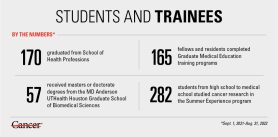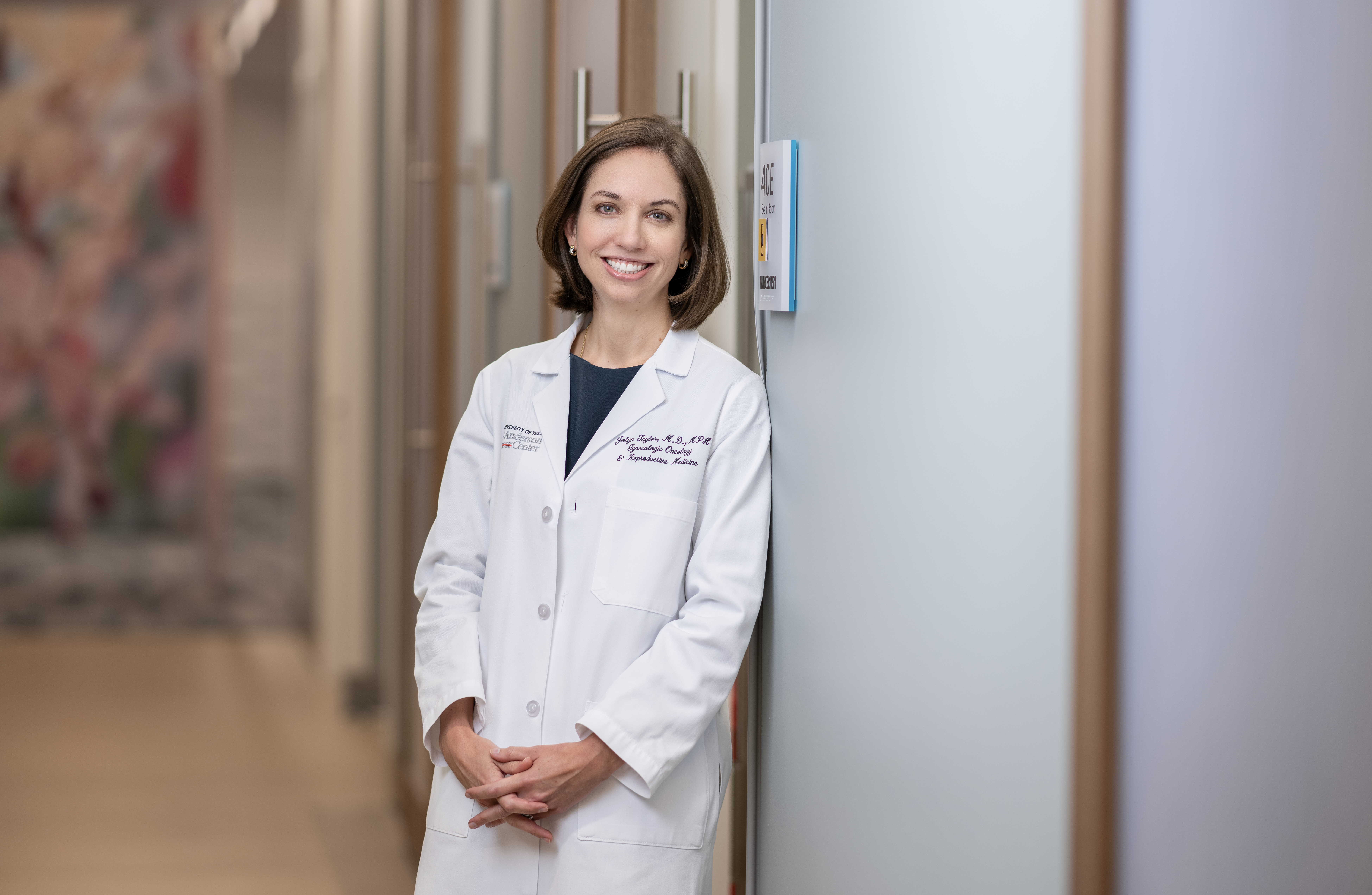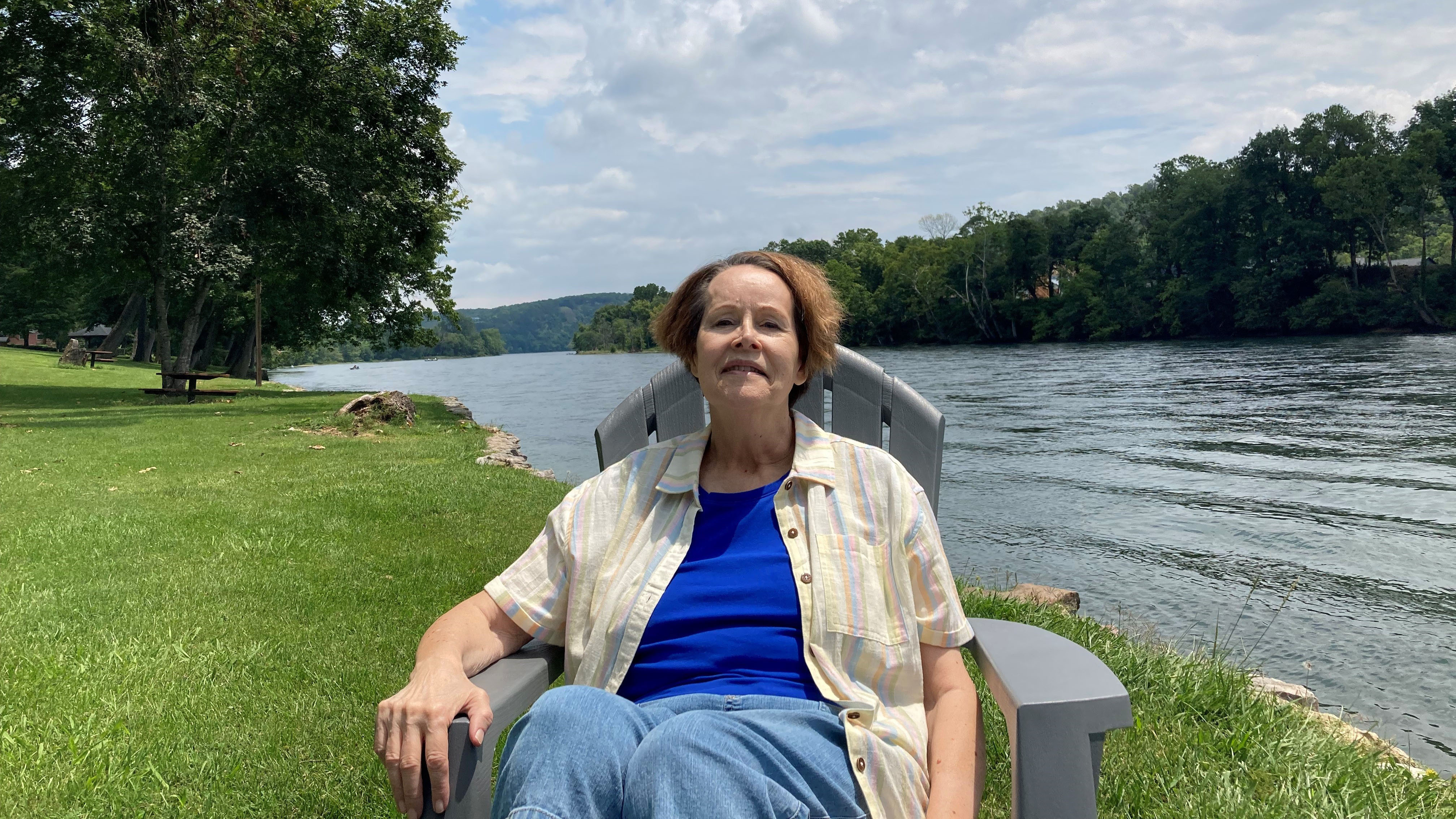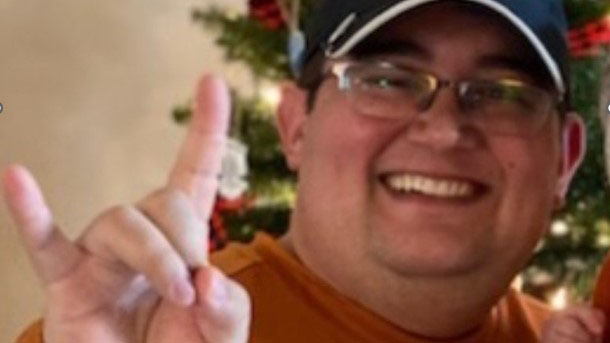- Diseases
- Acoustic Neuroma (14)
- Adrenal Gland Tumor (24)
- Anal Cancer (68)
- Anemia (2)
- Appendix Cancer (16)
- Bile Duct Cancer (26)
- Bladder Cancer (72)
- Brain Metastases (28)
- Brain Tumor (232)
- Breast Cancer (714)
- Breast Implant-Associated Anaplastic Large Cell Lymphoma (2)
- Cancer of Unknown Primary (4)
- Carcinoid Tumor (8)
- Cervical Cancer (158)
- Colon Cancer (166)
- Colorectal Cancer (116)
- Endocrine Tumor (4)
- Esophageal Cancer (44)
- Eye Cancer (36)
- Fallopian Tube Cancer (8)
- Germ Cell Tumor (4)
- Gestational Trophoblastic Disease (2)
- Head and Neck Cancer (12)
- Kidney Cancer (128)
- Leukemia (342)
- Liver Cancer (50)
- Lung Cancer (286)
- Lymphoma (278)
- Mesothelioma (14)
- Metastasis (30)
- Multiple Myeloma (100)
- Myelodysplastic Syndrome (60)
- Myeloproliferative Neoplasm (4)
- Neuroendocrine Tumors (16)
- Oral Cancer (100)
- Ovarian Cancer (172)
- Pancreatic Cancer (160)
- Parathyroid Disease (2)
- Penile Cancer (14)
- Pituitary Tumor (6)
- Prostate Cancer (146)
- Rectal Cancer (58)
- Renal Medullary Carcinoma (6)
- Salivary Gland Cancer (14)
- Sarcoma (238)
- Skin Cancer (294)
- Skull Base Tumors (56)
- Spinal Tumor (12)
- Stomach Cancer (64)
- Testicular Cancer (28)
- Throat Cancer (92)
- Thymoma (6)
- Thyroid Cancer (96)
- Tonsil Cancer (30)
- Uterine Cancer (80)
- Vaginal Cancer (16)
- Vulvar Cancer (20)
- Cancer Topic
- Adolescent and Young Adult Cancer Issues (20)
- Advance Care Planning (10)
- Biostatistics (2)
- Blood Donation (18)
- Bone Health (8)
- COVID-19 (362)
- Cancer Recurrence (120)
- Childhood Cancer Issues (120)
- Clinical Trials (630)
- Complementary Integrative Medicine (22)
- Cytogenetics (2)
- DNA Methylation (4)
- Diagnosis (232)
- Epigenetics (6)
- Fertility (62)
- Follow-up Guidelines (2)
- Health Disparities (14)
- Hereditary Cancer Syndromes (126)
- Immunology (18)
- Li-Fraumeni Syndrome (8)
- Mental Health (116)
- Molecular Diagnostics (8)
- Pain Management (62)
- Palliative Care (8)
- Pathology (10)
- Physical Therapy (18)
- Pregnancy (18)
- Prevention (912)
- Research (392)
- Second Opinion (74)
- Sexuality (16)
- Side Effects (604)
- Sleep Disorders (10)
- Stem Cell Transplantation Cellular Therapy (216)
- Support (402)
- Survivorship (320)
- Symptoms (182)
- Treatment (1786)
Training the next generation of histotechnologists
2 minute read | Published January 10, 2023
Medically Reviewed | Last reviewed by an MD Anderson Cancer Center medical professional on January 10, 2023
Coming from a long line of educators all the way back to her great-grandmother, Toysha Mayer, D.H.Sc., swore she’d choose a different career.
“I didn’t want to teach, but after becoming a histotechnologist, I ended up working in teaching hospitals. It was a natural progression for me to work with new technicians, residents and fellows,” says the assistant professor and associate program director for Histotechnology at The University of Texas MD Anderson Cancer Center School of Health Professions (SHP). Histotechnologists prepare patients’ tissues so our pathologists can make precise diagnoses for diseases like cancer.
Building connections with students
After 13 years with SHP, Mayer can’t imagine herself anywhere else but education.
Her favorite part of her role is doing hands-on work with students in the school's labs. As she helps them refine their techniques, she learns as much from them about how to improve her teaching skills as they learn from her about histotechnology. She creates connections with each student, trying to see their perspectives and tailor explanations of complex concepts to their individual backgrounds.
Creating a vital pipeline of highly skilled histotechnologists
Mayer takes pride in providing her students with the skills and knowledge they need to excel in the labs after graduation and to provide excellent patient care, no matter where their careers take them.
“We supply a vital pipeline and fill a need for highly skilled histotechnologists,” she says. “Some students stay here and represent MD Anderson when they go to national conferences, while others take jobs across the country and become ambassadors for the school’s excellence and our dedication to quality patient care.”
As someone whose family has been touched by cancer, Mayer takes comfort in knowing that her loved ones will be well cared for at MD Anderson and that the technologists trained by SHP are dedicated and highly qualified.
“I take pride in giving my students the best of me, so they are able to give their best to our patients,” she says.
Learn about education and training programs at MD Anderson.
Related Cancerwise Stories

We supply a vital pipeline and fill a need for highly skilled histotechnologists.
Toysha Mayer, D.H.Sc.
Assistant Professor, School of Health Professions






